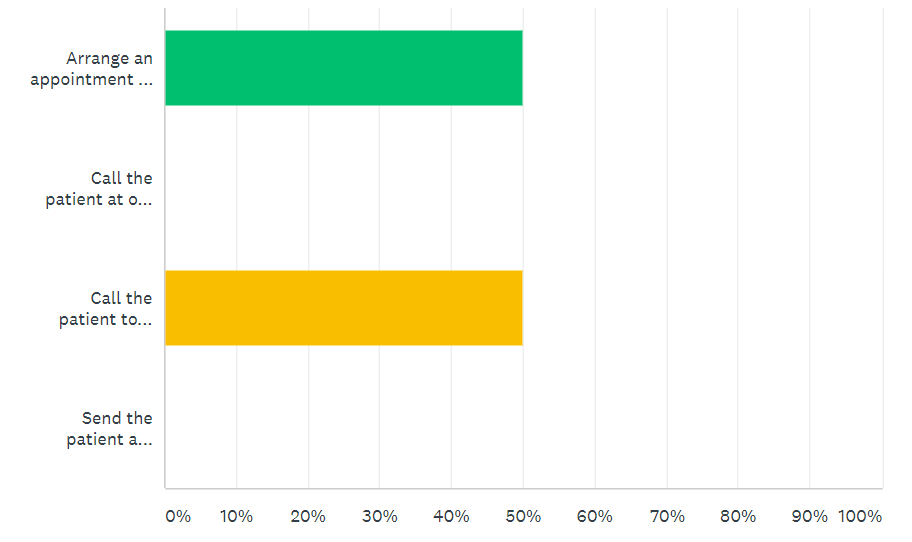September Question
September’s ethical question revolved around a concerned patient and physician disclosure of test results. Take another look:
A 67-year-old man presents to his physician complaining of discomfort in his lower abdomen and difficulty with urination. The man is 5 feet 11 inches tall and weighs 220 pounds. Although he used to smoke cigarettes, he was able to quit when he retired at age 65. Physical examination reveals an enlarged prostate. Suspecting the possibility of cancer, the physician orders a PSA test and tells the patient he will be contacted when the results are available. The patient is visibly upset at hearing the word “cancer” and, in spite of the physician’s reassurances of the low probability of malignancy, is physically shaking when he leaves the office. Several days later, the results of the test are received. The patient has a PSA of 3.5, elevated but below the commonly used screening test cutoff. At this point the physician’s best course of action would be to do which of the following?
- Arrange an appointment to talk with the patient in the next several days and review the results in person.
- Call the patient at once to deliver the news and offer guidance.
- Call the patient to deliver the news and schedule the patient for a follow-up appointment to review what he can do to improve his overall health.
- Send the patient a letter detailing the test results and suggesting the next course of action.

The results were evenly split between two answers, A and C. Half of respondents would prefer to speak in person with the patient before giving any news, while half of the respondents said they would call the patient with results before setting up an appointment.
November Question
This month, we are participating in Diversity and Inclusion HealthWeek and have themed our issue around this topic. Our November Ethical Question is an issue faced by many providers:
You are an administrator at a community hospital. As you are walking to the cafeteria, a young physician approaches you. She looks concerned. She says that she recently encountered discrimination at the hospital. The physician states that a patient told her he wanted to see a different physician because he didn’t like her “head scarf.” The physician is a practicing Muslim and abides by hospital dress code, which specifically allows religious garb. The hospital has a zero-tolerance discrimination policy that does not allow for discrimination based on religion, gender, sexual preference, or any other personal status. The physician says that one of her colleagues agreed to cover the patient but that she felt very uncomfortable and hurt by the situation. As a hospital administrator, what is the best course of action?
Tell us what you think!
Bridget Ralston is a member of The University of Arizona College of Medicine – Phoenix Class of 2020. She graduated from Santa Clara University in 2015 with a Bachelor of Science in Chemistry and a French minor. She de-stresses by whipping up delicious treats (and subsequently devouring them), playing soccer, and cuddling with her cat, Tuxedo. She has a particular interest in healthcare for underserved communities.


